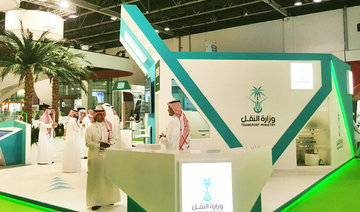RIYADH: The role of advanced data analytics and longitudinal studies in extending the healthy human lifespan came under the spotlight at a conference in Riyadh on Wednesday.
Expert panelists said that, as aging research evolved, the integration of large-scale data analytics with clinical trials was reshaping the understanding of healthy aging.
The session at the Global Healthspan Summit, of which Arab News is a media partner, highlighted key national-level initiatives such as France’s Instituts Hospitalo-Universitaires HealthAge and the UK’s Our Future Health.
Dr. Bruno Vellas, founder of the IHU HealthAge in Toulouse, set the stage by underlining the necessity of improving medical practices to align with innovative research.
“There is a need to change medical practice based on the evidence gathered,” he said, stressing the importance of integrating lifestyle factors into healthcare models.
Vellas noted that while data analytics offered immense benefits, they represented only part of the solution.
“To achieve optimal outcomes, findings must be translated into clinical practice,” he said.
The panel featured diverse voices including Dr. Raghib Ali, CEO and chief investigator of Our Future Health, who echoed the need for inclusive research practices.
“The focus is to produce evidence that is relevant to diverse populations, particularly those of South Asian and African descent,” he said, highlighting the urgency of addressing health disparities. “It is essential to ensure that the innovations developed are accessible to all, not just those with the highest incomes.”
Dr. Nikole Kimes, co-founder and CEO of Siolta Therapeutics, provided insights into how advanced analytics allowed researchers to move beyond traditional reductionist approaches in medicine.
“What advanced analytics enables is a shift from merely treating symptoms to understanding the complex interactions within biological systems,” she explained.
Emphasizing the importance of longitudinal studies, Kimes said: “These studies allow for an examination of health outcomes before disease symptoms manifest, providing a crucial advantage in preventative care.”
She also pointed to an emerging understanding of microbiome and nutrition in shaping long-term health outcomes. “By exploring these early factors, it is possible to potentially alleviate chronic diseases before they take root,” she said.
Dr. Richard I. Morimoto, a leading researcher from Northwestern University, elaborated on the cellular mechanisms underlying stress responses.
“Stress, often viewed negatively, can actually be protective at the molecular level,” he said, emphasizing the significance of understanding interpersonal variability in stress responses and advocating for personalized healthcare strategies.
“By harnessing large data analyses, it is possible to uncover how different individuals respond to stress and how to protect against disease,” he said.
“The integration of longitudinal studies and big data opens tremendous opportunities for detecting and mitigating health risks.”
He added that understanding cellular mechanisms in diverse populations was essential for tailoring interventions effectively.
However, as the panel discussed the potential of these innovations, they also acknowledged the challenges in translating research into practice.
Vellas pointed out the need for robust frameworks that could effectively incorporate findings into clinical settings. “There is a need to work diligently to avoid negative trial outcomes and ensure that research translates into tangible benefits for populations,” he warned.
The sentiment was echoed by Ali, who stressed the importance of identifying barriers to effective implementation. “It is critical to map out the stages in the journey from lab research to everyday life,” he said, highlighting the role of evidence-based practices in shaping public health interventions.
The discussions also touched on the ethical dimensions of research into extending the healthy human lifespan.
Kimes pointed out the responsibility researchers have in ensuring findings did not worsen health inequality.
“As new interventions are developed, it is vital to remain vigilant about their accessibility and affordability,” she said.
Her view aligned with Ali’s commitment to producing research with a global impact. “It is essential that findings benefit not only the UK but also communities worldwide,” he said.
In closing, the panelists underscored the critical importance of collaboration across disciplines and borders.
As the field of aging research continues to evolve, the insights shared highlighted the transformative potential of advanced data analytics and longitudinal studies. The prioritization of preventative care and research inclusiveness means experts are paving the way for a paradigm shift in the way healthy aging is approached.































